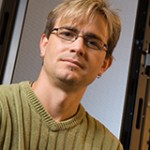 Congratulations to Brenton Graveley who has been invited to serve on the National Advisory Council for Human Genome Research for a four year term. Graveley, a professor of genetics and genome sciences, is a principal investigator of ENCODE (ENCyclopedia Of DNA Elements), a comprehensive catalog of function elements that control the expression of genetic information in a cell, in collaboration with scientists from other premier institutions nationwide. The prestigious appointment at NIH will better align UConn’s genomics efforts with the funding interests of the NIH and vice versa.
Congratulations to Brenton Graveley who has been invited to serve on the National Advisory Council for Human Genome Research for a four year term. Graveley, a professor of genetics and genome sciences, is a principal investigator of ENCODE (ENCyclopedia Of DNA Elements), a comprehensive catalog of function elements that control the expression of genetic information in a cell, in collaboration with scientists from other premier institutions nationwide. The prestigious appointment at NIH will better align UConn’s genomics efforts with the funding interests of the NIH and vice versa.
Research
Goldberg’s Research Featured in Prestigious Material Sciences Journal
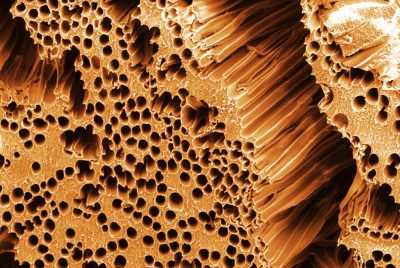 Congratulations to A. Jon Goldberg and Morteza Haeri with the Center for Biomaterials for their cover story in the current issue of Materials Today, a high impact journal in the material sciences field. The story “Mimicking Dentin Structure – Bio-inspired Scaffolds for Dental Tissue Engineering” describes the structure created in their lab to facilitate regeneration of tooth structure.
Congratulations to A. Jon Goldberg and Morteza Haeri with the Center for Biomaterials for their cover story in the current issue of Materials Today, a high impact journal in the material sciences field. The story “Mimicking Dentin Structure – Bio-inspired Scaffolds for Dental Tissue Engineering” describes the structure created in their lab to facilitate regeneration of tooth structure.
“At the Center for Biomaterials, University of Connecticut School of Dental Medicine, we are involved in the development of innovative bio-inspired scaffolds for tooth regeneration,” states Goldberg in the article. “Dental caries (tooth decay) remains the most prevalent infectious disease and treatments using restorative dental materials suffer from problems including leakage at interfaces, deterioration, and recurrent lesions. Our ultimate clinical vision is to regenerate dentin in diseased or traumatized teeth in order to reduce or even eliminate the need for synthetic filling materials.”
The issue’s cover image shows a microtubular scaffold made from an acrylate copolymer, and was captured using a tabletop scanning electron microscope. The scaffold was made via the sacrificial fiber templating method by packing poly vinyl alcohol fibers inside a mold and polymerization of acrylate monomers around it. The fibers were subsequently washed away leaving the tubular structure behind. The cut on the right side of the image reveals the orientation of the tubules and their long aspect ratio.
Anthony Vella Named Immunology Chair
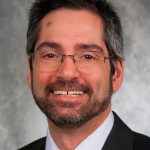
Anthony Vella has been named chair of the Department of Immunology at the UConn School of Medicine. A professor of immunology, Vella is a national leader in innovative research centered on T cell biology. His work has examined how adjuvants and costimulation enhance or modulate immune responses. Using a wide spectrum of technologies these studies have helped define mechanisms that control CD4 and CD8 T cell activation, tolerance, cytokine production, cell differentiation and survival.
Vella is also closely involved in multiple collaborative research projects designed to uncover new ways to diagnose and treat inflammatory-based diseases, as well as developing cancer immunotherapies and conducting biodefense research. He holds several NIH grants, serves on national grant review panels, is a member of AAI and other professional societies, previously served as director of the Immunology Graduate Program at UConn Health, and has mentored a number of Ph.D. and M.D./Ph.D. students and postdoctoral fellows.
In 1986 Vella received his B.A. in Biology from SUNY Buffalo State, and in 1989 an M.S. from Rensselaer Polytechnic Institute (Troy, N.Y.). His doctoral thesis was completed in 1993 in the laboratory of Dr. Edward Pearce, Cornell University (Ithaca, N.Y.), and conducted postdoctoral training in the laboratory of Drs. Philippa Marrack and John Kappler at National Jewish Health (Denver, Col.). After joining the UConn School of Medicine he was promoted to full professor in 2013, and has served on a variety of university administrative and education-related committees.
Congratulations to CURE Award Winner Cato Laurencin
Dr. Cato T. Laurencin has received the 2014 CURE Academic Entrepreneur of the Year award for his pioneering work in regenerative medicine. Laurencin’s research has focused on the application of resorbable polymer scaffold technology suitable for treatment of tendon, ligament, and other soft tissue injuries.
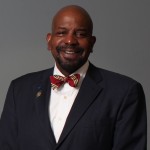 A distinguished professor and surgeon, Laurencin has received numerous recognitions. He received the Presidential Award for Excellence in Science, Mathematics, and Engineering Mentoring from President Barack Obama in ceremonies at the White House, and the American Association for the Advancement of Science’s Mentor Award.
A distinguished professor and surgeon, Laurencin has received numerous recognitions. He received the Presidential Award for Excellence in Science, Mathematics, and Engineering Mentoring from President Barack Obama in ceremonies at the White House, and the American Association for the Advancement of Science’s Mentor Award.
He served as the dean of the University of Connecticut School of Medicine and the vice president for health affairs at UConn Health from 2008 – 2011.
Currently, as the chief executive officer of the Connecticut Institute for Clinical and Translational Science, the director of the Institute for Regenerative Engineering, and the director of the Raymond and Beverly Sackler Center for Biomedical, Biological, Physical, and Engineering Sciences at the University of Connecticut, Laurencin enthusiastically leads the charge at UConn to encourage innovation and creativity in the diverse and rapidly evolving area of tissue regeneration.
CURE (Connecticut United for Research Excellence) is the bioscience cluster of Connecticut, a diverse network of small and large life and health care sciences companies, universities, scientists, educators, students, entrepreneurs, mentors, business experts, service providers and investors.
Arnold Chosen to Present Prestigious Lecture
Dr. Andrew Arnold, Murray-Heilig Chair in Molecular Medicine, was the featured keynote speaker for the 17th annual John Haddad Memorial Lecture at the University of Pennsylvania’s Perelman School of Medicine on Nov. 6. This endowed lecture honors the memory of the former chief of endocrinology at Penn, and is presented each year by a world-renowned research scientist “who exemplifies the highest ideals of scholarship in the field of bone and mineral metabolism.”
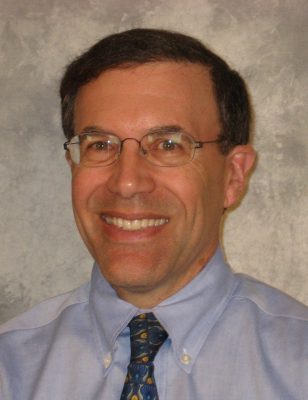
Arnold is a leader in the area of endocrine neoplasia, especially tumors of the parathyroid glands which disrupt the body’s handling of calcium. His Haddad Memorial Lecture was entitled “Primary Hyperparathyroidism: Molecular Insights and Clinical Implications.”
Arnold, professor of medicine and genetics and developmental biology, serves as director of the Center for Molecular Medicine and chief of the Division of Endocrinology and Metabolism at UConn Health. He has received other major awards and recognitions including the Fuller Albright Award and Louis Avioli Founders Award from the American
Society for Bone and Mineral Research; the Gerald Aurbach Award from the Endocrine Society; and is an elected member of the American Society for Clinical Investigation and the Association of American Physicians.